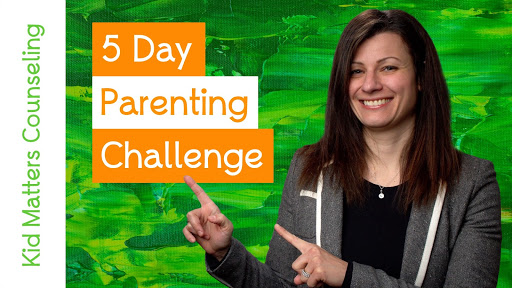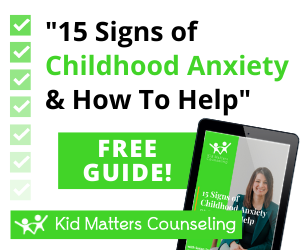Myth #1: My child is choosing not to pay attention to me
Parenting a child with ADHD is hard and can be frustrating. Morning routines are stressful, chores may feel impossible, and don’t even get me started on homework time.
Oftentimes, parents and teachers assume that the child is deliberately choosing to disobey or not follow through with instructions. But that is usually not the case.
ADHD is a neurological issue. Their behaviors, distractibility, inattention, hyperactivity are almost involuntary and controlling them requires a lot of work and oftentimes treatment.
I know many kids who may get started on a task, but then get distracted by something (anything), which gets them off course. They may then need to be directed (and re-directed) repeatedly until the task is complete. They do not choose to get distracted, to forget, to loose things, to have trouble finishing tasks, so it’s important for parents to understand and have empathy for their distractible child.
Myth # 2: Parenting patterns cause ADHD
So what actually causes ADHD? Although some people think that social factors or poor parenting may cause ADHD, research studies point to genetic and neurological factors as the main causes of ADHD.
In fact, twin studies have shown that family environments contribute very little to individual differences in ADHD symptoms. Family environments and parenting patterns do, however, largely impact coexisting disorders such as oppositional defiant disorder or other ADHD symptoms.
Although there are many changes parents can make to support their child with ADHD, their parenting did not cause the diagnosis nor can they reverse it.
Myth #3: My child is not hyperactive, so he does not have ADHD.
Many families I have worked with have told me that they know their child does not have ADHD because they are not hyper or constantly moving.
In actuality, there are three types of ADHD, and one type does not include hyperactivity at all, but rather is defined by difficulty sustaining attention and being easily distracted. This type of ADHD oftentimes gets overlooked because, well, the squeaky wheel gets the grease. The child who is constantly moving and overactive is going to get more attention than the child who is quietly daydreaming.
Overlooking inattentive kids with diagnosable ADHD can have serious and lasting consequences. I have worked with many children whose ADHD was overlooked for so long that by the time it is identified, the children have developed depression or anxiety due to the impacts of struggling for so long.
So those are my 3 myths and facts about ADHD. If you are a parent of a child with attention difficulties, know that there is hope. Give me a call today and I can partner with you to help your child manage his or her ADHD symptoms.

Dr. Alana Roth
Clinical Psychologist
Do you have a child who is struggling socially, emotionally, or academically? I specialize in working with children to integrate developmentally appropriate, research-based treatments and walk alongside families in the healing process.
Kid Matters Counseling has trained therapists ready to help both kids and parents walk through the tough moments in life.
End the frustration & the confusion and let's work together! SCHEDULE APPOINTMENTNew Clients Call: (855) 586-1802
Current Clients: (855) 543-7687
Ask Us Anything!
We help anxious kids and frustrated parents. We serve Hinsdale & the Western Suburbs of Chicago.
Made with ♥︎ in Hinsdale, Illinois for Chicago
Built By Brand Your Practice.
Kid Matters Counseling, P.C. DISCLAIMER: This website and blog are for informational, educational and general discussion purposes only. It is understood that no guarantee or warranty arises from the information provided, discussed or commented upon in this website and blog nor does it constitute legal or other professional advice on any subject matter. Access to this website and blog is voluntary and at the sole risk of the user. If you think that you have a medical emergency (including clinical), call your doctor or 911 immediately. A licensed medical professional should be consulted for diagnosis and treatment of any and all medical conditions. While the information contained within this website and blog is periodically updated, no guarantee is given that the information provided is correct, complete, and/or up-to-date. See our complete Privacy Policy and Terms of Service.



